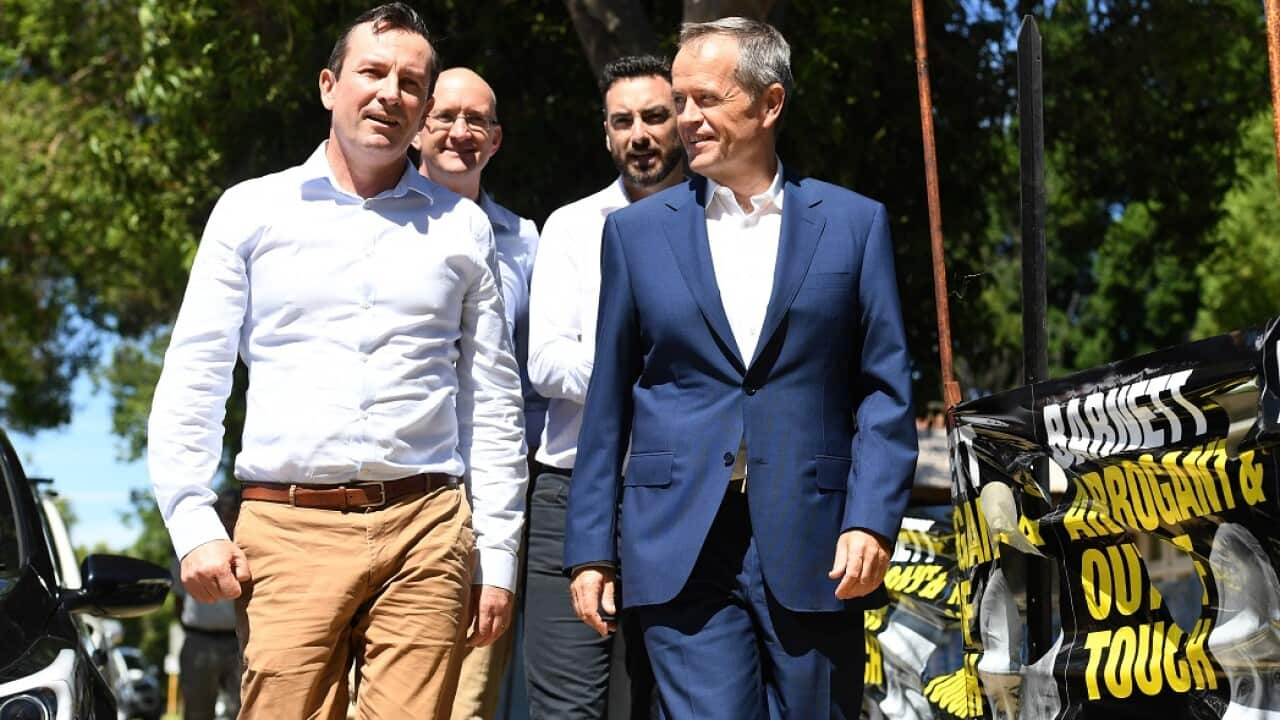The federal opposition has claimed Western Australian Labor's triumphant election win at the weekend as proof that the penalty rates dispute is resonating with the community.
Treasurer Scott Morrison told 2GB radio on Monday that time, the Barnett government's struggle at transitioning out of the mining investment boom, and other local factors caused the massive swing to WA Labor.
But Mr Shorten said he believed the slashing of penalty rates by the Fair Work Commission "would have had an impact" on the result, though he "unhesitatingly" gave full credit to WA Labor leader Mark McGowan for the victory.
"The decision to cut penalty rates did come down two weeks before the conclusion of the West Australian election," Opposition leader Shorten said.
He said those in retail, hospitality and pharmacy, as well as fast food jobs, were "getting a wage cut, full stop".
"It's just a wage cut. There's no increase in wages in any other part of the pay packet," he said.
While Prime Minister Malcolm Turnbull avoided the Western Australian election campaign all together, Bill Shorten took the contrary approach, and even campaigned on polling day which was something Treasurer Scott Morrison took issue with.
"No amount of Bill Shorten photobombing election parties is going to put him in the frame on these sorts of issues," Mr Morrison said.
"Honestly, if people think that's the reason that the Western Australian Government lost the election on the weekend, I think they're kidding themselves."
Treasurer Morrison played down the controversial deal, which saw the Barnett Liberal's horse-trade votes in a complicated preference arrangement.
"If people think that's the reason that the Western Australian Government lost the election on the weekend, I think they’re kidding themselves."
"We'd been in there for some time, and time and those other issues locally took their toll. You've just got to take your medicine on that and move forward," Mr Morrison said.
Opposition leader Bill Shorten dismissed that Labor's deal with the Greens is not dissimilar to One Nation's preference swapping arrangements with the WA Liberals.
"I don't accept that their views are part of the mainstream like other major political parties."
"Let us not pretend that One Nation is like these other political parties," he said highlighting One Nation leader Pauline Hanson's recent concerns about vaccinations.
"One Nation's rapidly becoming a faction of the Liberal Party, but I don't accept that their views are part of the mainstream like other major political parties."

